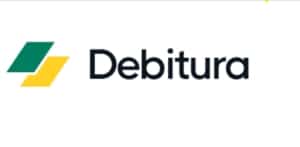Introduction
Operating a business in Nigeria requires various licenses and permits, which are vital for legal compliance and smooth functioning. The specific requirements can vary based on the nature of the business, its location, and whether it involves foreign investment. This article provides detailed overview of the essential licenses and permits needed for business operations in Nigeria.
Industries: Permits and Licenses in Nigeria
- Oil and Gas
In Nigeria, the oil and gas industry is regulated by various permits and licenses. The regulatory framework has been significantly shaped by the Petroleum Industry Act (PIA) of 2021, which introduced new categories and guidelines for obtaining necessary permissions.
Types of Licenses in the Upstream Sector
The upstream sector, which focuses on exploration and production, requires specific licenses:
- Petroleum Mining Lease (PML): This allows disposal and working of crude oil, natural gas, and condensate. It is valid for 20 years.
- Petroleum Prospecting License (PPL): This is an exclusive license for drilling and exploration activities. The duration varies based on specific operations.
- Petroleum Exploration License (PEL): This a non-exclusive license valid for 3 years, with a possible renewal for an additional three years
- Liquefied Petroleum Gas (LPG) License: This is required for businesses that store, distribute, or sell LPG, which is often used in home and commercial cooking.
NUPRC Permits
The Nigerian Upstream Petroleum Regulatory Commission (NUPRC), formerly known as the Department of Petroleum Resources (DPR), oversees the issuance of permits necessary for oil and gas operations. There are three main categories of permits available:
- General Purpose Permits: For minor supplies, works, and maintenance services without specialized skills.
- Major Category Permits: This requires relevant technical skills and covers various job groups such as consultancy, logistics, and aviation support.
- Specialized Category Permits: For highly technical services like offshore pipeline construction and integrity testing.
- Banking and Financial Services Licenses
The banking and financial services sector is heavily regulated, primarily by the Central Bank of Nigeria (CBN). The CBN issues various licenses to ensure that financial institutions operate within the legal framework established by the Banks and Other Financial Institutions Act (BOFIA) 2020. Below is a detailed overview of the types of licenses available, the application process, and compliance requirements.
Types of Licenses
- Commercial Banking License: This allows banks to accept deposits and provide loans.
- Microfinance Banking License: Targets financial services for low-income individuals and small businesses.
- Specialized Banking License: This include non-interest banks (Islamic banking), microfinance banks, development banks, and mortgage banks.
- Non-Interest Banking License: For banks operating on Islamic principles, offering Sharia-compliant products.
- Merchant Banking License: Focuses on providing financial services to corporations, including advisory and underwriting services.
- Bureau De Change License: This permits entities to engage in foreign currency exchange activities.
- Payment Service Solution Provider License: This is required by companies offering digital payment solutions like electronic funds transfer and mobile payments.
- Mobile Money Operator License: This allows entities to provide mobile money services, facilitating transactions via mobile phones.
- Securities Trading License: This is essential for individuals and firms wishing to engage in the buying and selling of securities, including stocks, bonds, and other financial instruments.
- Insurance license: The National Insurance Commission (NAICOM) regulates the issuance of these licenses, ensuring that all insurance providers comply with established standards to protect policyholders and maintain market integrity.
- Telecommunications and Media Licenses
The telecommunications and media sectors are regulated by the Nigerian Communications Commission (NCC), which is responsible for issuing various licenses that authorise entities to provide communication services.
Types of Telecommunications Licenses
The NCC issues several categories of licenses, each tailored to specific services and operational needs:
- Individual License: This license is granted to specific entities to conduct designated activities.
- Class License: A general license that applies to all entities providing similar services.
- Unified Access Service License (UASL): A comprehensive license allowing the provision of multiple telecommunication services under one license.
- Value Added Services (VAS) License: Permits the provision of non-core telecommunications services that enhance standard offerings.
- Metropolitan Fibre Cable Network License (MFCN): Allows entities to build and operate fibre optic networks within metropolitan areas.
- National Long Distance Operator (NLDO) License: Authorizes operators to provide long-distance telecommunications services within Nigeria.
- Frequency License: Required for operators wishing to use specific frequency bands for wireless communications.
- Automated Vehicle Tracking Service (AVTS) License: For companies offering vehicle tracking solutions using telecommunications technology.
- Broadcasting License: The National Broadcasting Commission (NBC) issues several categories of broadcasting licenses to entity wishing to operate radio or television stations. These licenses include radio broadcasting license, television broadcasting license, satellite broadcasting license and community radio license.
- Pharmaceutical and Healthcare Services Licenses
The National Agency for Food and Drug Administration and Control (NAFDAC) is the primary regulatory body responsible for issuing licenses related to pharmaceuticals, while other agencies oversee specific healthcare services.
Types of Pharmaceutical Licenses
- Pharmaceutical Manufacturing License: This authorises companies to manufacture pharmaceutical products.
- Pharmaceutical Import License: It allows entities to import pharmaceutical products into Nigeria.
- Pharmaceutical Distribution License: It permits companies to distribute pharmaceutical products within Nigeria.
- Retail Pharmacy License: This is required for pharmacies that sell medications directly to consumers.
Types of Healthcare Services Licenses
- Hospital License: This is required for general hospitals providing a range of medical services.
- Clinic License: It is required for smaller healthcare facilities offering limited services.
- Laboratory License: Is required for laboratories conducting medical tests or analyses.
- Medical Device Registration: This ensures that medical devices sold in Nigeria are safe and effective.
- Real Estate and Construction License
The regulatory framework is primarily governed by the Estate Surveyors and Valuers Registration Board of Nigeria (ESVARBON) and other relevant bodies.
Types of Real Estate and Construction Licenses
- Real Estate Agent License: This authorises individuals to act as intermediaries in buying, selling, or renting properties.
- Real Estate Developer License: It is required for firms involved in property development, including residential, commercial, and industrial projects.
- Construction Company License: Allows firms to undertake construction projects, including residential, commercial, and infrastructure developments.
- Valuer License: Permits licensed professionals to conduct property valuations for various purposes, including sales, taxation, and insurance.
- Surveying License: It authorizes professionals to perform land surveys and provide related services.
- Facility Management License: It is required for firms providing facility management services in real estate properties.
- Building Permits: Is issued by local or state urban development bodies. Every building project requires this permission to comply with safety regulations.
- Environmental Impact Assessment (EIA) Permit: Required for projects with potential environmental impact. It is given by the Federal Ministry of Environment.
- Agriculture Licenses
These licenses are regulated by several governmental bodies to ensure compliance with safety standards, promote sustainable practices, and enhance food security. The National Agricultural Seed Council (NASC), the Federal Ministry of Agriculture and Rural Development (FMARD), and the National Agency for Food and Drug Administration and Control (NAFDAC) are key agencies involved in the licensing process.
Types of Agriculture Licenses
- Farm Registration License: It is required for individuals or entities operating agricultural farms.
- Seed Production License: This is necessary for companies involved in the production, processing, and marketing of agricultural seeds.
- Pesticide Registration License: This authorizes the use of pesticides in agricultural practices.
- Livestock Dealer License: This is required for businesses engaged in buying and selling livestock.
- Food Processing License: This is necessary for entities engaged in the processing of agricultural products.
- Agricultural Export License: This is required for exporting agricultural products outside Nigeria.
- Aquaculture License: Is required for entities engaged in fish farming or aquaculture operations.
- Organic Certification License: This is required for farms producing organic products that comply with organic farming standards.
- Food and Beverage
This licensing framework is designed to ensure compliance with health, safety, and quality standards to protect consumers and promote public health. The regulatory bodies involved in the licensing process include the National Agency for Food and Drug Administration and Control (NAFDAC), local government authorities, and other relevant state agencies.
Types of Food and Beverage Licenses
- Food Processing License: Required for entities involved in the processing of food products.
- Food Permit: This is necessary for restaurants, cafes, and other food establishments before they commence operations.
- Alcohol License: This is required for businesses that manufacture, import, or sell alcoholic beverages.
- Retail Food License: It is required for retail outlets selling packaged food products.
- Catering License: Is required for catering services that prepare food for events or provide meal delivery.
- Signage Permit: Required for businesses wishing to display outdoor signage.
- Food Handling Certificate: Workers in the food service industry may require food handling certification to attest to their adherence to safety and hygiene regulations.
- Health and Hygiene Permit: Local government health authorities require restaurants, catering services, and food handlers to obtain health permits, which guarantee that establishments meet food safety and sanitation standards.
- Tourism and Hospitality
- Hotel License: This is required for establishments providing lodging services to guests.
- Restaurant License: Is necessary for establishments that prepare and serve food to customers.
- Travel Agency License: This license authorises businesses to operate as travel agencies, providing travel-related services such as ticketing, tour packages, and travel consultancy.
- Tour Operator License: Is required for businesses that organize and conduct tours for tourists.
- Tourism Promotion License: For entities engaged in promoting tourism activities within Nigeria.
- Event Center License: This is required for venues hosting events such as weddings, conferences, and parties.
- Car Hire License: For businesses offering vehicle rental services to tourists.
- Camping Ground License: This is necessary for facilities that provide camping services to tourists.
- Education Licenses
These licenses ensure that educational providers meet established standards, promote quality education, and protect the interests of students and the public. The regulatory framework is primarily overseen by the Federal Ministry of Education and various professional bodies, including the Teachers Registration Council of Nigeria (TRCN) and the National Commission for Colleges of Education (NCCE).
Types of Education Licenses
- School Registration License: This is required for primary, secondary, and tertiary educational institutions to operate legally.
- Teachers Registration License: It is issued by the TRCN to certify that teachers meet the required qualifications to teach in schools.
- Higher Education Institution License: This is necessary for universities, polytechnics, and colleges of education to operate.
- Vocational Training License: Required for institutions offering vocational training programs.
- Distance Learning License: This is required for institutions providing distance education programs.
- Postgraduate Diploma in Education (PGDE) License: This is necessary for institutions offering postgraduate diploma programs aimed at training educators.
- Early Childhood Education License: It is required for centers providing early childhood education services.
- Manufacturing License
This licensing framework is designed to ensure compliance with safety, quality, and environmental standards, thereby protecting consumers and promoting industrial growth. The regulatory bodies involved in the licensing process include the Manufacturers Association of Nigeria (MAN), the National Agency for Food and Drug Administration and Control (NAFDAC), and the Standards Organisation of Nigeria (SON).
Types of Manufacturing Licenses
- Manufacturing Company Registration: To operate legally, manufacturing entities must register with the Corporate Affairs Commission (CAC) and provide documentation such as a business plan, proof of address, and details of shareholders.
- Product Registration License: This is necessary for manufacturers producing consumable goods, ensuring that products meet safety and quality standards.
- Quality Assurance License: This is issued by SON to certify that products meet national quality standards.
- Food Processing License: This is required for companies involved in food processing activities.
- Pharmaceutical Manufacturing License: This is specifically for manufacturers producing pharmaceutical products.
- Chemical Manufacturing License: This is required for companies producing chemical products.
- Cosmetic Manufacturing License: This is necessary for manufacturers producing cosmetic products.
- Import/Export License for Manufactured Goods: Businesses involved in importing or exporting manufactured products must obtain necessary permits from relevant authorities depending on the nature of the goods.
- Entertainment Licenses
- Entertainment License: This is required for venues that host public entertainment events such as concerts, theater performances, and dance shows.
- Nightclub License: This is necessary for establishments that operate as nightclubs or bars where patrons can dance and enjoy live or recorded music
- Theater License: This is required for venues specifically designated for theatrical performances.
- Film Production License: Individuals or companies engaged in the production of films or video content must obtain approval from the National Film and Video Censors Board (NFVCB), which includes submitting scripts for censorship and ensuring compliance with content regulations.
- Special Event License: This is needed for organizing temporary events such as festivals, fairs, or outdoor concerts.
- Live Performance License: This is necessary for venues hosting live music performances or other acts.
- Amusement Park License: Is necessary for operating amusement parks or entertainment centers with rides and games.
- Sports Betting Licenses
Sports betting is regulated by the National Lottery Regulatory Commission (NLRC) at the federal level, along with state lottery boards, such as the Lagos State Lottery Board (LSLB). These licenses ensure compliance with legal standards, promote responsible gaming, and protect consumers.
Types of Sports Betting Licenses
- Sports Betting License: This authorises operators to engage in sports betting activities, allowing them to accept wagers on various sporting events.
- Promotional Lottery License: This allows operators to conduct promotional lotteries that may include elements of sports betting.
- Online Sports Betting License: Is specifically for companies wishing to offer sports betting services via online platforms.
- State-specific sports betting license: Some states have their own regulations and licensing requirements for sports betting operators. For instance, in Lagos State, operators must obtain a license from the Lagos State Lottery Board (LSLB) in addition to federal licensing.
- Local business operations.
- Business Registration with the Corporate Affairs Commission (CAC): Registering a business provides legal recognition, protects intellectual property rights, and facilitates statutory compliance such as tax filings and annual returns. The Corporate Affairs Commission (CAC) is the regulatory body responsible for overseeing the registration of businesses, ensuring compliance with the Companies and Allied Matters Act (CAMA).
- Signage Permit: Retail and service businesses wishing to display outdoor signage are required to obtain a permit from local government councils or state advertising agency. For example, in Lagos, the Lagos State Signage and Advertisement Agency (LASAA) oversees outdoor advertising.
- Environmental Health Permit: Businesses that generate trash or engage in any hazardous activities must obtain permits from local environmental agencies to ensure adequate waste management methods.
- Mining and Quarrying
The Ministry of Mines and Steel Development (MMSD) is the key government agency responsible for issuing these licenses.
Types of Mining and Quarrying Licenses
- Exploration License: Grants the holder the right to explore for mineral resources in a specified area.
- Mining Lease: Allows the holder to extract minerals from a defined area.
- Small Scale Mining Lease (SSML): This is designed for smaller operations, such as artisanal or low-tech mining activities.
- Possess or Purchase License: Is required for entities seeking to trade in mineral resources without holding a mining lease.
- Mineral Buying Centre License: Allows companies to establish centers for buying and storing minerals.
- Mineral Export Permit: This must be obtained each time minerals are exported.
- Transportation and Logistics
This licensing is regulated by various government agencies, including the Federal Road Safety Corps (FRSC), state transport authorities, and the Courier and Logistics Regulatory Department (CLRD) under the Nigerian Postal Service (NIPOST) for logistics-related activities.
Types of Transportation and Logistics Licenses
- Freight Forwarding License: Required for businesses that facilitate the shipment of goods across borders, ensuring compliance with customs regulations.
- Road Transport License: This is overseen by the Federal Road Safety Corps (FRSC) and various state transport authorities.
- State Transport Authority (STA) License: This is required for intra-state transport operators, such as local bus services or taxi operators.
- National Union of Road Transport Workers (NURTW) Permit: A union permit required for road transport operators to ensure compliance with union regulations and standards.
- Hackney Permit: Required for commercial vehicles operating within a local government area, ensuring compliance with local regulations.
- International Courier License: For companies delivering parcels locally and internationally.
- National Courier License: For operators delivering parcels across Nigeria.
- Regional Courier License: For operations within specific regions of Nigeria.
- State/Special SMEs License: For small-scale courier operations within a single state.
- Power and Energy
The Nigerian Electricity Regulatory Commission (NERC) issues licenses to companies that generate or distribute power.
Types of Power and Energy Licenses
- Generation License: This allows the construction, operation, ownership, and maintenance of electricity generation facilities.
- Transmission License: Authorises the transmission of high-voltage electricity over a transmission network. Only Transmission Company of Nigeria (TCN) qualifies for this license
- Distribution License: This allows the holder to distribute electricity from grid supply points to consumers.
- Captive Power Generation Permit: Allows entities to generate electricity exceeding 1 MW for self-consumption.
- Meter Asset Provider (MAP) License: For entities approved to provide metering services including installation and maintenance.
- Meter Service Provider (MSP) License: For manufacturers, suppliers, or installers of electric meters or metering systems.
- Renewable Energy Permit: This is necessary for businesses that offer solar, wind, or other renewable energy solutions.
Conclusion
To operate a business legally in Nigeria, certain licenses and permits are required. It is important for business owners to understand and obtain these licenses and permits to ensure compliance and avoid legal issues while establishing their businesses in Nigeria. Considering that each permit has its unique procedures and requirement, it is important that business owners seek expertise of leading legal partitioners on top of the above listed practice areas for specific guides.
Note: The content of this article is anticipated to provide a general guide to the subject matter. Specialist advice should be sought about your specific circumstance.
Written by Samuel Anwe for Adeola Oyinlade & Co.
Adeola Oyinlade & Co. is a leading full-service law firm in Nigeria providing competent, innovative, cost-effective, and well-timed responsive services. The firm offers a variety of legal services including corporate, commercial and business advisory, dispute resolution, litigation and more to a vast range of national and foreign clients.
To see our service offerings, please contact us at [email protected] or visit www.adeolaoyinlade.com
Telephone: +234 803 826 7683 / +234 802 686 0247







